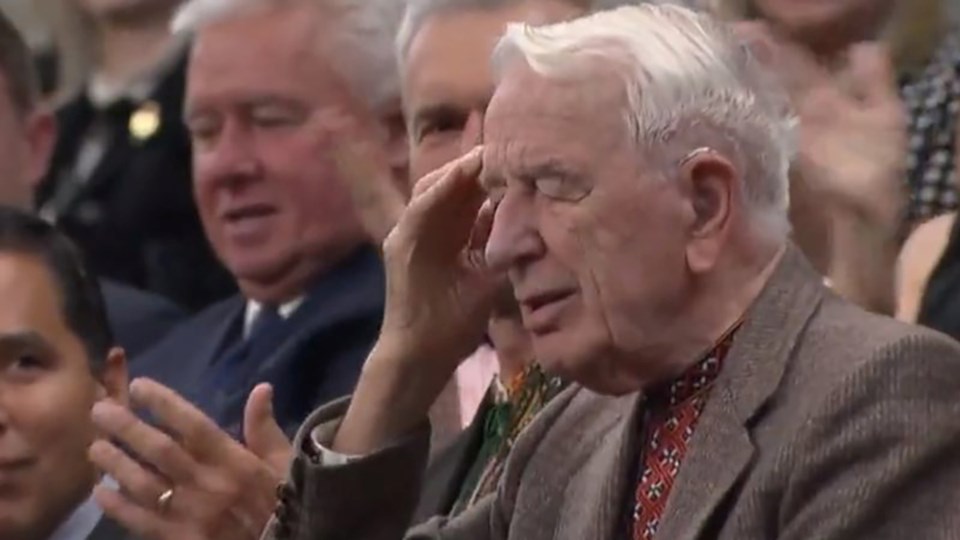We are all aware that, “In war, truth is the first casualty.” Truth, of course, is the antithesis of propaganda, and in a society where people think critically, what is labeled by one side as “disinformation” cannot simply be dismissed, it must be disproven.
Canadian Parliament handed Russian President Vladimir Putin a gift when the entire chamber gave a standing ovation to a former Nazi soldier from Ukraine. On September 22, with current Ukrainian President Volodymyr Zelensky present, the Speaker of the House, Anthony Rota, called Yaroslav Hunka, a Ukrainian immigrant who was a member of Hitler’s Waffen SS during the Second World War “a Canadian hero.”
When the truth about Hunka’s past came out, the consequence was what Conservative Party leader Pierre Poilievre called our country’s “biggest single diplomatic embarrassment.”
What has followed in Parliament and in the media, however, is finger-pointing and confusion, rather than a quest to understand how and why such an error happened. Rota has stepped down as Speaker, Prime Minister Justin Trudeau has apologized, and all parties represented in Canadian Parliament continue to vote for our tax dollars being used to support the Ukraine War. Should Canadians be satisfied with this conclusion, however?
Why would Hunka, a man who knew what he had done during the Second World War, agree to be publicly lauded in Canadian Parliament? Why did Rota seem to have no knowledge about what Hunka represented? Why has no Canadian opposition party and no mainstream media source in Canada pursued these questions?
As is often the case with propaganda, there is a grain of truth to Mr. Putin’s accusations of links to Nazism in the Canadian Ukrainian community. While most Canadians support the cause of the Ukrainian people, only one-third of us support using our tax dollars for military aid. Could this be why Canadian parliamentarians, their donors, the corporate media, and their sponsors were so anxious to avoid the questions that so many Canadians were asking?
The truth is that during the Cold War, Canada allowed and even encouraged thousands of Nazi war criminals to immigrate from Ukraine. Among them were not only Yaroslav Hunka, but also Michael Chomiak, the grandfather of current Deputy Prime Minister Chrystia Freeland. Chomiak ran a newspaper that published Nazi propaganda, using a printing press stolen from a Jewish family.
Despite Freeland’s involvement in this fiasco being a seemingly taboo topic in Canada, it has not escaped the attention of the international media. One example was an interview on the U.S. news program Democracy Now featuring Lev Golinkin, an American writer who is also a Jewish-Ukrainian refugee. He pointed out that while Freeland holds no responsibility for the actions of her grandfather, she is responsible for presenting her grandfather as a victim rather than as a perpetrator. She has been espousing a revisionist myth that confuses Canadians and covers up the truth about the most notorious genocide in human history.
Why would Rota realize that Yaroslav Hunka was a Nazi soldier when the person who could well become a future prime minister is presenting such a warped narrative? Why wouldn’t Hunka accept an opportunity to be honoured in our Parliament when there are powerful people like Freeland whitewashing the crimes of Ukrainian Nazis during the Second World War?
These are the important questions that the mainstream Canadian media and opposition parliamentarians failed to address, and they too need to be held accountable.
For a principled person, truth is nothing to fear. It may make us uncomfortable for a time, but the end result is always solace and the satisfaction that comes from knowing we have done the right thing. The same is true of nations. If we are going to build the kind of world where crimes like the Holocaust never happen, we need to pursue truth without fear and let history take its course.
Gerry Chidiac is a Prince George writer.



